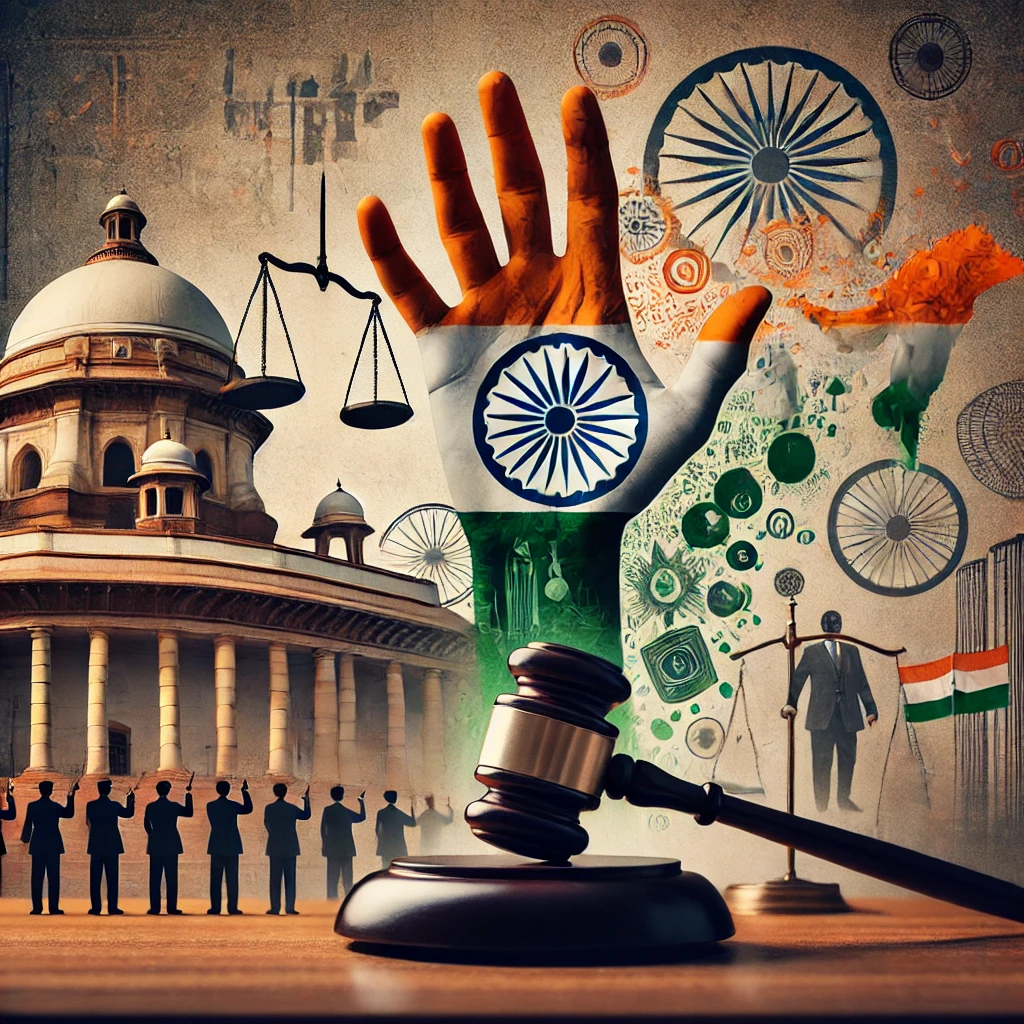
India, the world’s largest democracy, has faced significant challenges in safeguarding human rights and ensuring effective governance. As the country strides forward as an emerging global power, the ability to protect fundamental rights and uphold democratic values is critical. However, recent issues with freedom of expression, judicial independence, and minority rights have brought India’s commitment to human rights under scrutiny.
In this article, we explore the key human rights challenges in India and the pressing governance issues that require immediate attention, offering insight into potential solutions to restore the country’s democratic integrity.
Key Areas of Concern in Human Rights and Governance
1. Freedom of Expression and Press: A Vital Democratic Pillar Under Threat
Freedom of expression remains at the core of India’s democracy. However, reports of increasing restrictions on journalists and activists have raised serious concerns. In 2023, India ranked 142nd in the World Press Freedom Index, a significant decline from previous years. The rise of censorship, harassment, and arrests of journalists has stifled critical voices and limited public access to accurate information. It’s crucial that India reinforces the protection of independent media outlets to maintain transparency and democracy.
2. Judicial Independence: Ensuring Impartiality in Legal Institutions

The independence of the judiciary is essential for upholding human rights and delivering justice. Unfortunately, recent allegations of political interference have raised questions about the impartiality of legal processes. A compromised judiciary weakens public trust in the legal system and threatens the protection of citizens’ rights. India must implement judicial reforms to enhance autonomy, transparency, and accountability within its judicial institutions.
3. Minority Rights and Social Justice: Fostering Equal Protection for All
Discrimination and violence against religious and ethnic minorities are persistent problems in India. Ensuring equal protection under the law for all citizens, regardless of their background, is essential for social harmony. For instance, the Citizenship Amendment Act (CAA) protests underscored the deep concerns about the protection of minority rights, triggering widespread public dissent. India must prioritize the rights of vulnerable communities to promote social justice and inclusion.
4. Political Instability and Governance: Tackling Policy Flip-Flops and Social Unrest
India’s political landscape has been marked by frequent policy flip-flops, instability, and social unrest. From violent riots to the escalation of regional tensions, these issues have destabilized the social fabric. The Durga Puja Visarjan violence and the Kuki-Matai conflict in Northeast India serve as reminders of the governance failures that often exacerbate communal tensions. It is vital for India to adopt consistent and transparent policies that address social divisions and foster national unity.
5. Economic Policies and Human Rights: Balancing Growth and Equity
India’s rapid economic growth has brought about numerous opportunities, but it has also highlighted the challenges of income inequality and resource distribution. The rise of large corporations, such as Jio, has squeezed out smaller businesses, leading to fewer opportunities for entrepreneurs and workers. Government policies often favor large businesses, neglecting the needs of smaller players in the market. It’s essential for India to create a more equitable economic landscape by providing equal opportunities for both small and large businesses.
6. The Legal System and Public Trust: Reforms Needed for Transparency
India’s legal system faces significant criticism for delays in justice and political interference. The Porsche accident case in Bangalore and Atul’s suicide case are two examples where legal proceedings were delayed, leaving the public questioning the efficiency and impartiality of the legal system. Strengthening the legal system with transparency and accountability measures will help restore public trust and ensure that justice is served promptly and fairly.
7. Taxation Burden and Economic Discontent: Are Taxes Wasted?
Many Indian citizens feel that they are taxed like foreigners, but the government fails to deliver tangible returns. The taxation system, while necessary for funding public services, has become a point of contention due to the lack of substantial public goods in return. The growing perception that taxes are a waste of common man’s money leads to frustration, particularly as individuals see fewer benefits from their contributions. This economic discontent fuels the desire for migration in search of better living conditions abroad.
8. Governance and Accountability: The Need for Reforms
India’s ability to govern effectively has been hampered by corruption and lack of accountability. The National Herald case, for example, showcased the country’s governance challenges, with political parties allegedly being involved in prolonged legal battles. Stronger governance reforms are needed to increase accountability at all levels and to ensure that India’s democracy remains robust and transparent.
Proposed Solutions for Strengthening Governance and Human Rights
1. Judicial Reforms: Restoring Faith in the Legal System
Reforming the judiciary to ensure greater autonomy, transparency, and accountability is critical. By addressing the concerns of political interference and ensuring timely delivery of justice, India can restore public confidence in its legal system. It’s also important to expedite legal proceedings, especially in cases that have far-reaching implications for public safety and rights.
2. Strengthening Institutions: Empowering Independent Bodies

India must empower independent regulatory bodies and human rights commissions to oversee and protect the rights of citizens. This includes ensuring that journalists, activists, and marginalized communities have adequate protection from harassment, threats, and violence. Strengthening these institutions will help safeguard fundamental rights and foster social justice.
3. Promoting Civic Participation and Open Dialogue
Encouraging civic participation and promoting open dialogues between the government and its citizens are crucial for addressing grievances and ensuring governance policies are inclusive. Active public engagement can lead to better transparency, as citizens will feel their voices are heard and considered in decision-making processes.
Conclusion: Ensuring India’s Democratic Integrity
India’s commitment to human rights and democratic values is under immense pressure. The country’s challenges, including growing human rights violations, judicial inefficiency, and increasing political instability, must be addressed with urgency. By implementing reforms in governance, strengthening judicial independence, and promoting social justice, India can reinforce its democratic foundations and ensure a brighter future for all its citizens.





